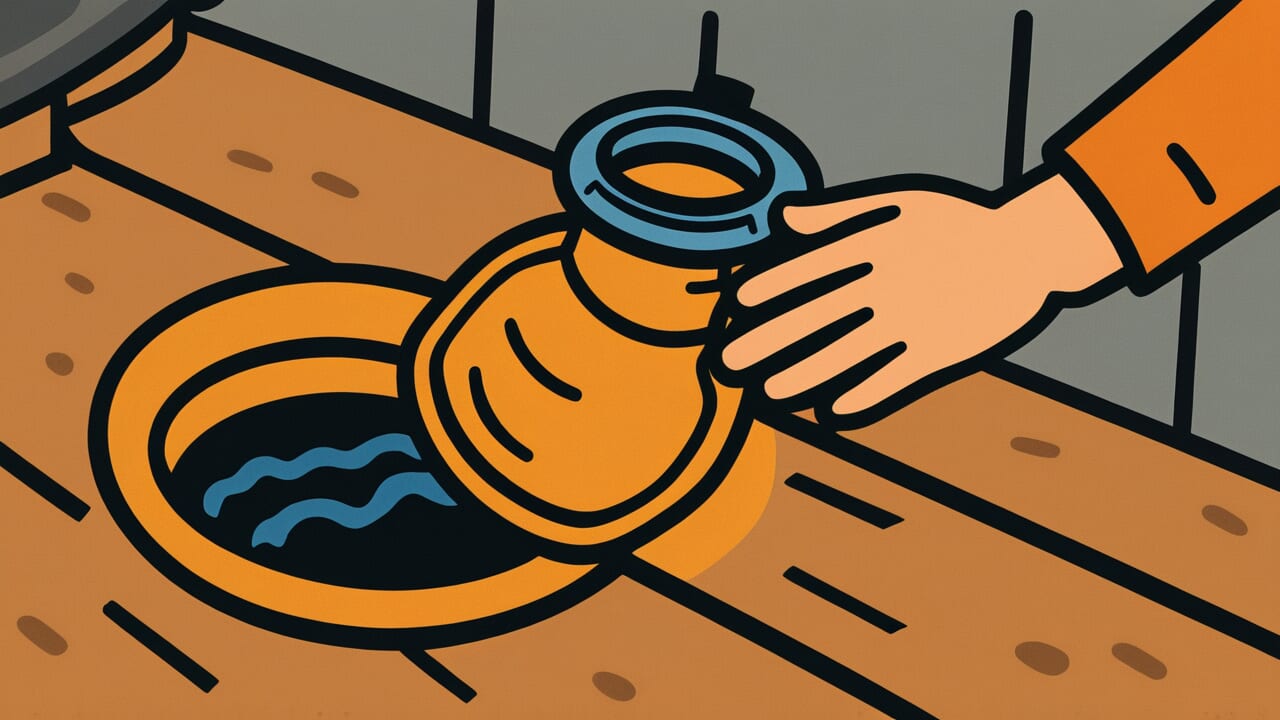How to Read “Covering the well after falling in”
Hamatta ato de ido no futa wo suru
Meaning of “Covering the well after falling in”
This proverb teaches that taking action after an accident or problem occurs is too late. Just as covering a well after someone has fallen in is meaningless, taking preventive measures after something bad happens is pointless.
People use this saying to warn those who ignore danger signs and only act after trouble strikes. For example, someone ignores health warnings and only regrets it after getting sick.
Or a company experiences a data breach because they neglected security measures.
This expression exists because humans have an optimistic mindset of “it’ll be fine for now.” We tend not to take action seriously until danger is right in front of us.
This proverb sounds an alarm about this human tendency. It teaches that true wisdom lies in prevention, not reaction.
Origin and Etymology
The exact literary origin of this proverb is unclear. However, since it uses wells as its subject, it likely comes from everyday wisdom passed down among common people for generations.
Wells were essential facilities for obtaining water in Japanese life for centuries. Children accidentally falling into wells was surely a serious problem in every era.
Covering a well is a basic safety measure. But once an accident happens, covering it becomes meaningless.
The structure of this expression reveals its core message through reversed timing. Normally, “covering the well” should come first to prevent “falling in.”
But this proverb shows human foolishness by reversing that order.
A similar proverb exists: “regret never comes first.” But “Covering the well after falling in” uses a concrete example from daily life.
This made the lesson resonate more deeply with people. It has been passed down as wisdom about hidden dangers in everyday life and the importance of prevention.
Usage Examples
- After losing data I hadn’t backed up, I realized it was like covering the well after falling in
- Fixing the storm shutters after the typhoon arrives is like covering the well after falling in
Universal Wisdom
Humans have a strange psychology. We believe “bad things won’t happen to me” without any real basis.
This proverb has been passed down for hundreds of years because it strikes at this human nature.
We understand danger intellectually, but we don’t truly act until we experience pain ourselves. We buy insurance after an accident, care about health after getting sick, and value relationships after losing them.
This pattern repeats endlessly. Why?
Because prevention produces no visible results. When an accident doesn’t happen, was it because of our measures or just good luck? Nobody knows.
So people avoid the immediate hassle and postpone action, thinking “it’s still okay.”
But our ancestors saw through this human weakness. They used the familiar example of a well to pass down the importance of prevention to future generations.
Once something happens, it’s too late. We forget this simple truth over and over again.
This proverb lives on today because humans are fundamentally unchanged. Technology advances, but the human tendency to “regret later” remains the same as it was a thousand years ago.
When AI Hears This
Why don’t companies and organizations seriously invest in safety measures until accidents occur? This isn’t simple negligence.
A fundamental dilemma exists in system design.
Preventive measures have visible costs, but their effects only appear as “nothing happened.” Success is invisible.
Meanwhile, post-accident measures become clear achievements: “this will never happen again.” From a manager’s perspective, spending 50 million after an accident is easier to explain to shareholders than investing 100 million annually in prevention.
The former is more rational probabilistically, but human decision-making systems favor the latter.
More interesting is the paradox that systems become stronger after experiencing accidents. The aviation industry updates safety standards after each crash, making modern aircraft extremely safe.
Biological immune systems work the same way, acquiring antibodies after exposure to pathogens.
This proverb points to an ironic truth: having “mechanisms to learn quickly from failure” creates stronger long-term systems than aiming for perfect prevention.
The experience of falling into the well itself functions as an organizational learning device.
Lessons for Today
This proverb teaches modern people the importance of using imagination. The ability to sense problems that haven’t happened yet as if they’re right in front of you.
That’s the first step toward prevention.
Modern society has become more complex than ever. Cybersecurity, health management, relationships, career development.
In every area, we face the risk of “covering the well after falling in.” But don’t worry.
By knowing this proverb, you’ve already developed awareness about prevention.
The key is not aiming for perfection. Preparing for every risk is impossible.
Start by finding one nearby “well” and covering it. It could be backing up data, scheduling a health checkup, or expressing gratitude to someone important.
Small acts of prevention accumulate to protect your future. And most importantly, prevention brings no regrets.
The day will surely come when you think “I’m glad I took action back then.” Start today.
Cover your well now.



Comments